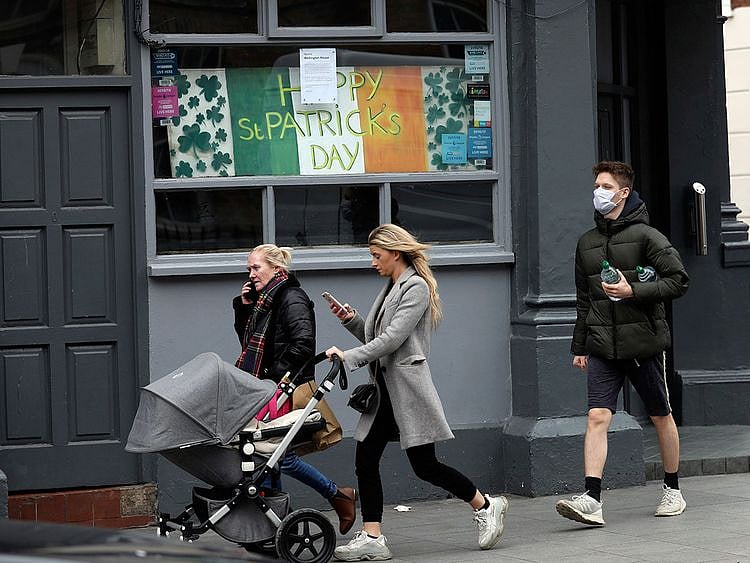The importance of history now is so often overlooked in the pursuit of instant gratification and social media prominence, our era where fleeting likes and shares count as currency rather than weight and depth in matters of current affairs. That is our pity. But history is important.
This week, four decades ago, Bobby Sands began his hunger strike in a prison cell in a Northern Ireland jail. The leader of the Irish Republican Army prisoners detained in the H-Blocks would be joined at regular intervals — a deliberate policy by the republican leadership to exert pressure on the government of then Prime Minister Margaret Thatcher to gain recognition that they were more than common criminals — political prisoners who were engaged in a military campaign to end eight centuries of British or English involvement in the affairs of Ireland, and to reunite the island of Ireland by one means or another.
Those means included bombing and shootings, murders and menace, mayhem and malice over three decades that resulted in the deaths of some 3,600 people and injuries to 36,000 more.
Four decades on, Ireland is still divided between the British-ruled six counties that make up Northern Ireland and 26 more counties to the south that is the Republic of Ireland. The IRA that Sands and his fellow republican prisoners joined has disbanded and decommissioned its arms — all part of the Good Friday peace agreement.
And Sinn Fein, the political wing of the terrorist group, sits in parliament chambers in Dublin and shares power in the devolved government of Northern Ireland.
We are almost at the confluence of opinion polls and demographics that make the uniting of Ireland a probability by the end of this decade — a referendum on that border is part and parcel of the Good Friday Agreement.
Brexit and its fallout has exposed the realities of maintaining artificial ties between Ulster and the rest of Britain on the other side of a customs border down the Irish Sea, and there are now at least two generations who have lived in Ireland and do not know the reality of being searched in streets or having to over their shoulders with suspicion at anything and everything.
And in many ways, the actions of Bobby Sands 40 years ago was the defining catalyst for these profound changes — not that we knew it then.
Hunger strikes are a vicious and cruel pressure tactic — effective only if the participants refuse to eat and take no other liquid than water. Sands’ was a propaganda coup, with news networks around the world interrupting their scheduled programming to report his death 66 days later.
Those were weeks that undermined Thatcher’s and the United Kingdom’s international standing. In part, when the UK introduced internment without trial in Northern Ireland in 1971 at the start of the conflict there, it effectively recognised those taking part in the violence as political prisoners, but ended that classification in 1976. Sands and the nine others who followed him to their deaths wanted the right to associate with others and to wear their own clothes.
For the government in London the issue was simple. “Crime is crime is crime: it is not political, it is crime, and there can be no question of granting political status,” Thatcher famously said a few weeks into the hunger strike.
What changed Sands’ protest into one that still reverberates today was the death of Frank Maguire, an independent Irish nationalist who held the Westminster seat as Member of Parliament for Fermanagh-South Tyrone. A by-election was quickly called, with nationalist candidates stepping aside to allow the nomination of Sands a free run for the seat.
A stroke of political genius
It was a stroke of political genius — he was a poet and was serving 14 years for possession of firearms after being arrested following a gun battle with security forces. The election was held on April 9, six weeks into his self-starving protest. With a turnout of just under 87 per cent, Sands won 30,493 votes to win by a margin of 2.4 per cent against the single unionist candidate.
For the world, the Irish question was brought into focus — and his eventual martyrdom on May 5 sparked violence in the province and global condemnation. But it also showed the military leaders in Northern Ireland that they could be elected while pursuing a campaign of violence at the same time — a Armalite rifle in one hand, a ballot box in the other in a phrase that was aptly coined at the time.
Sands’ election opened the door by very unconventional means for the violent men in Ireland to turn towards constitutional politics. Through Irish history, the pendulum has swung between the bullet and the ballot. I would like to think that is indeed the case now permanently. It is not.
But at least we have come to the stage where the futility of armed conflict has been realised, that it can never fully achieve its goals. That is a lesson that should be learnt by others in conflict zones around the world, be in Palestine or Afghanistan. It takes brave men to make peace, cowards to break peace.
Sign up for the Daily Briefing
Get the latest news and updates straight to your inbox
Network Links
GN StoreDownload our app
© Al Nisr Publishing LLC 2026. All rights reserved.
